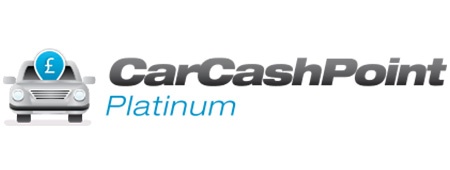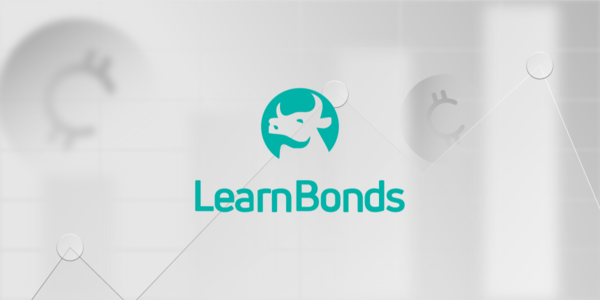Best Bad Credit Loan Providers and Sites in 2020
If you have a less than ideal credit rating, you probably know just how difficult it can be to obtain a loan and other credit services. And even if you are able to get a loan, it’s likely that its interest rates will be sky high in-line with the higher-than-average risks faced by the lender.
It, however, isn’t all doom and gloom for you as there still are a plethora of UK lenders out there willing to advance loans at competitive interest rates to individuals with bad credit and others with non-existent credit history. And in pointing you to the right direction, we’ve created the ultimate guide to the Best Bad Credit Loans of 2026. Here, we not only explain how bad credit loans work but also list 9 of what we consider the best bad credit lenders in the market.
-
-
Note: One of the most important factors that you need to look out for when taking out a bad credit loan is the APR. While a bad credit tends to scare away affordable loan service providers, you will still want to avoid loan lenders that charge super-high interest rates.
The Pros and cons of bad credit loans
Pros
- Suitable for people of all credit profiles
- Qualify for a loan with a bad credit score or no credit history
- Thousands of loan providers to choose from
- Loans from as little as £50
- Complete the entire application online or via your mobile phone
Cons
- Interest rates much higher than conventional loans
- May impose high fees and penalties for late payments
- Might demand collateral for the loan
How do bad credit loans work? Read our step-by-step guide
The bad credit loan application process works largely the same as any other loan application. However, if you have never applied for a loan before, or you simply want a refresher, be sure to check out the step-by-step guide outlined below.
Step 1: Find a loan provider
First, you will want to find a bad credit loan provider that meets your individual needs. And you can start by scrolling down to the section below and reviewing the three providers that we have recommended.
Step 2: Start the application
Once you have found a suitable lender, head over to their client registration page/portal. In most cases, the application can be completed online or via your mobile phone in a matter of minutes.
Step 3: Enter your personal information
At the next stage of the application process, you will be asked to enter some personal information. At this point ,you will need to provide your full name, home address, previous addresses, date of birth, national insurance number, telephone number, and email address.
Step 4: Enter your financial information
After you have provided your personal information, the lender will then ask you some questions aimed at assessing your financial standing. This will initially include your employment status, how much you earn, how long you have been employed with the company, and how often you receive your salary. You will also need to stipulate whether you are a homeowner or renter as well as your current debt status.
Step 5: Enter your bank account details
If your application is approved, your loan funds will be transferred to your UK bank account. As such, the lender will ask you to enter the name of your bank, account number, and sort code. These are also used to verify your identity and to prevent fraud.
Step 6: Review the lender’s decision and if applicable, loan offer
Once you have entered the above information, the lender will then verify the data against third-party sources – including its preferred credit rating agency. This usually takes no longer than 30-60 seconds, after which you will be informed whether or not your application was successful. In some cases, the lender might require supporting documentation surrounding your identity and/or financial standing.
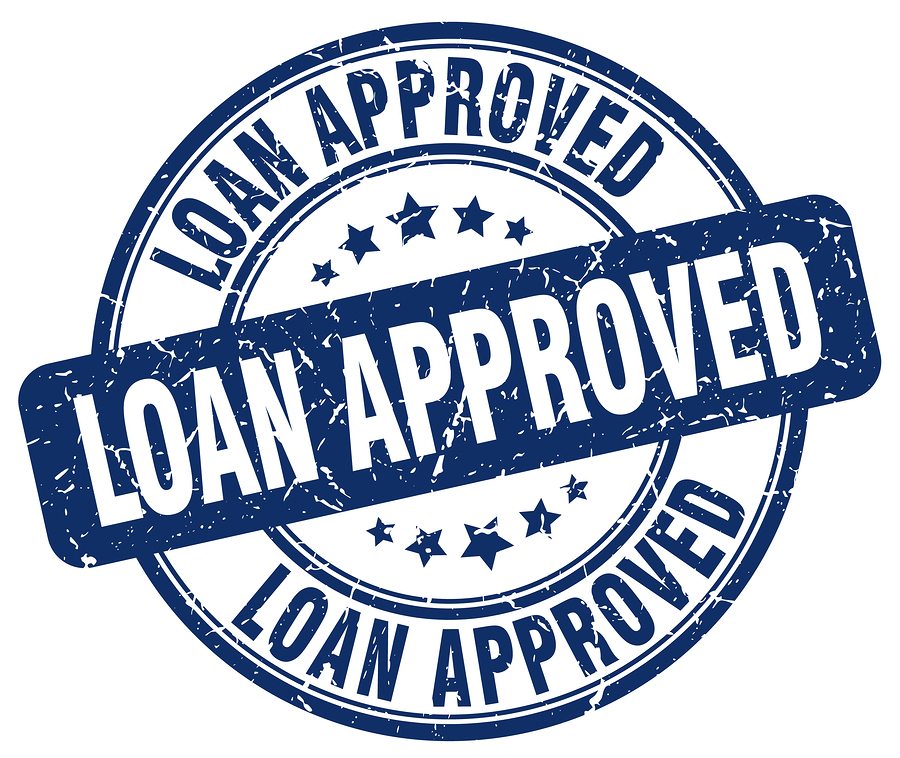
Nevertheless, if your application is approved on the spot, you will be able to review your loan offer. Known as a pre-approval offer, this will outline how much the lender is willing to lend you, and at what rate of interest. If you are happy with the offer, you can then proceed to the final stage of the application.
Step 7: Sign the digital loan agreement
The final stage of the bad credit loan application will require you to sign the loan application form. As the entire process is completed online, you can sign the agreement digitally. In most cases, the lender will then forward the funds to your specified bank account within 48 hours.
Criteria used to rank the best bad credit loan providers
- Lenders with the most competitive APR rates
- Lenders that allow you to complete the entire application online
- Lenders that are transparent on their fees
- Lenders that consider loan application from borrowers with the lowest credit scores
- Lenders that do not charge high late payment fees
Reviewer’s choice for bad credit loan providers
Reviewers Choice
Piggy Bank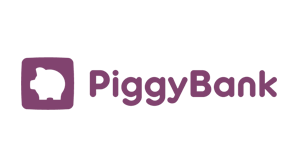 RatingAvailable Loan Amount£100 - £1000Available Term Length7 days to 5 MonthsRepresentative APR1,255% up to 1698.1%Product Details
RatingAvailable Loan Amount£100 - £1000Available Term Length7 days to 5 MonthsRepresentative APR1,255% up to 1698.1%Product Details- Try our feature Payday Loan Supplier Instead
Pros- This company has now gone into administration
Key Facts- Piggy Bank are a Direct Lender
- Available for Bad Credit Scores
Car Cash PointPeachy Loans RatingAvailable Loan Amount£100 - £1000Available Term Length1 Month to 1 YearRepresentative APR720%Product Details
RatingAvailable Loan Amount£100 - £1000Available Term Length1 Month to 1 YearRepresentative APR720%Product Details- Peachy Are A Direct Lender
Pros- Spread Payments Over Multiple Months
- Funds within 1 hour of processing
- Unavailable for those with current CCJs
- Minimum Monthly Income of £1000 Required
Key Facts- Loan application Accessible on any platform or device
- Peachy Claim Now Hidden Fees
- See Fees Upfront On Their Calculator
Best 9 bad credit loan providers
Now that you have a good idea of what bad credit loans are, and how they work. If you’re now ready to make a loan application, but not too sure which lender to go with, we have outlined to best 9 loan providers of 2026.

7. Ocean Finance – Borrow between £100 - £5,000
Ocean Finance is a specialist lender that offers its credit products to individuals with a less than ideal credit profile. The platform allows you to borrow from just £100, all the way up to £5,000. And according to the provider's website, the representative rate stands at 49.9% APR. You could, however, end up paying a higher or lower rate than this, which will depend on your credit profile.
And although Ocean Finance is known to have a much higher acceptance rate in comparison to traditional high street lenders, it is important to note that the company is not a direct lender. In other words, once you go through the application process, Ocean Finance will then match you with a lender from within its network.
Our Rating
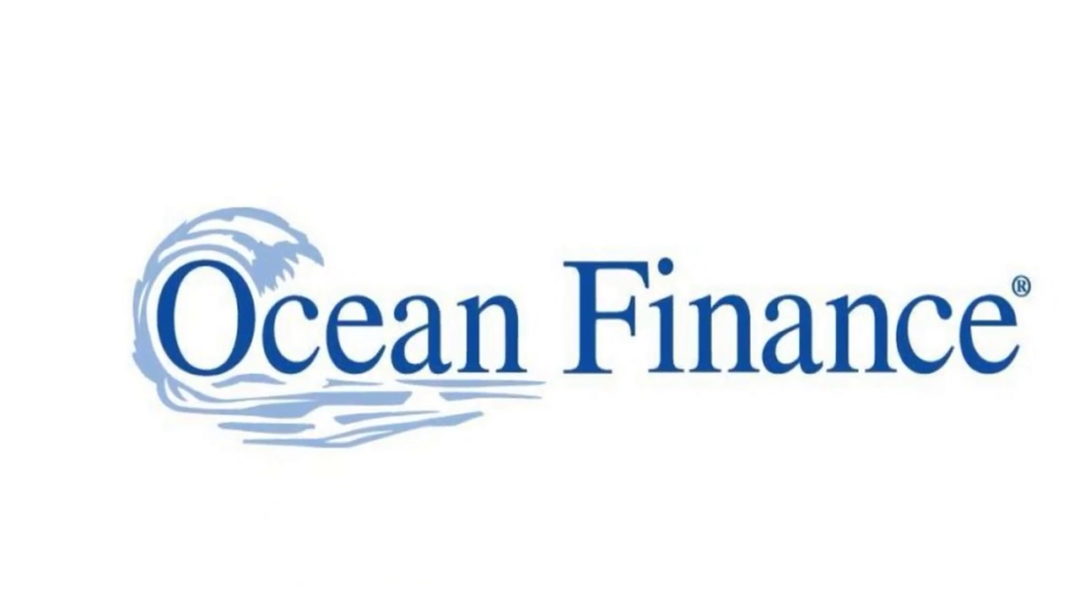
- Advances unsecured personal loans of between £100 and £5,000
- Suitable for individuals with a bad credit rating or no credit history
- The entire application is completed in a straightforward online process
- Not a Ocean finance is not a direct lender
- The representative stands at 49.9% APR
8. New Horizons – Borrow between £50 - £5,000
Just like Ocean Finance, New Horizons is an online platform that strives to match you with a bad credit loans provider with the most competitive rates in the market. As such, they are not a direct lender but a loans marketplace. Nevertheless, the platform allows you to apply for a loan of between £50 and £5,000. Moreover, New Horizons also markets a representative APR averages 49.9% with the actual rate depending on your personal circumstances.
The lender allows you to apply for a loan term of 3 - 36 months, while claiming that some of the lenders within its network will transfer the cash within 15 minutes of approval. Most importantly, New Horizons will not charge you any fees to use its platform. Finally, although New Horizons does not perform a credit check on applicants, there is no guarantee the lenders that it matches you with will not pull out your credit report.
Our Rating

- Does not charge any loan application fees
- Maintains relatively high limits for personal loans - between £50 and £5,000
- Extended loan repayment terms - upto 36 months
- Not a direct lender
- A relatively high APR - 49.9%
9. Cash Float – Borrow between £200 - £1,100
If you don't like the sound of being matched with a third-party lender, and want to apply for a loan with a direct lender, then you might want to consider Cash Float. The online-only lender offers bad credit loans of between £200 and £1,100. Not only does the platform accept less than ideal credit profiles, but borrowers are not required to add a guarantor to the loan agreement.
You might, however, want to note that the APR rates charged by Cash Float can be quite high - starting from 49.9%. We nevertheless liked the lender's transparency when it comes to interest rate calculation plus they make it possible for you to review your pre-approval loan rate before depositing the loan in your bank.
Our Rating

- Straightforward online loan application process
- No guarantor required
- Cashfloat is a direct lender
- Relatively low loan limits - between £200 and £1,100
- High APR rates - as much as 695%
What is a bad credit loan?
In its most basic form, a bad credit loan is simply a conventional loan that allows UK consumers with bad or non-existent credit history to obtain a loan while those with a good credit profile benefit from the best loan offers that carry attractively low interest rates. In most cases, a bad credit loan will also be characterized by high interest rates. Bad credit loan providers – both direct lenders and loans marketplaces – come in handy in providing an alternative source of finance for bad credit borrowers.

The overarching reason for the high interest is that loan providers are required to take on more risk by lending to those with bad credit borrowers given that the chances of defaulting will be higher when compared to borrowers with a good credit score.
After all, if you do have a bad credit score, it is likely to be because you have previously missed out payments on credit-based products. This doesn’t include loans per-say, but other credit products such as credit cards, store cards, and overdrafts. It is also important to note that bad credit loans are also suitable for those that have no credit profile at all. This might be because you only recently turned 18, or you have never taken out credit before.
How do lenders assess my credit score?
If you have ever interacted with a credit service, whether a loan, credit card debt , or bank overdraft, you certainly left a trail and these lenders have your credit history. These lenders have probably shared this credit repayment history with the three main credit bureaus. In the UK, the three main agencies are Equifax, Experian, and Callcredit. And if you were prompt with your repayments ensuring they were on time, your lenders shared the good news with the bureaus. Similarly, if you missed payments or failed to pay altogether, the negative reported is also filed with the credit bureau agencies. As you go through life, these credit agencies will collect more and more data, which subsequently results in what is known as your ‘credit score’.
Here’s an overview of some of the main factors that determine what your credit score looks like.
- Whether you have ever missed or been late for a repayment
- How much credit you have, or have previously had outstanding
- The types of credit products you have
- The size of your repayments in relation to your outstanding balances
- Whether you have any CCJs (County Court Judgments) against your name
It is also important to note that your credit profile is used to verify your identity when you apply for a loan. This is crucial, as your application is likely to be rejected if the lender is unable to verify your identity electronically. One of the easiest ways for credit agencies to do this is to check your name against the electoral roll.
Note that credit agencies will also hold data on whether you have any court records against your name that are linked to debt (such as bankruptcies), and whether you have any financial associations with other UK consumers (such as joint mortgages).
Do I have bad credit?
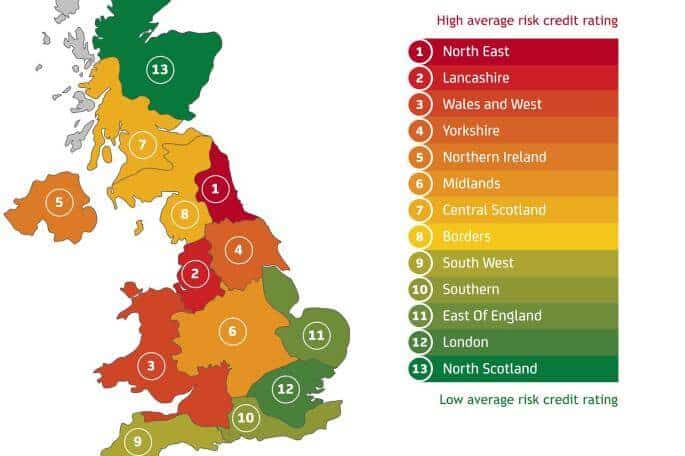
Whether or not lenders deem you to have a bad credit score is ultimately down to the main credit reporting agencies. As we noted in the previous section, your credit profile is dictated by your credit-related actions. On the one hand, just because you have missed a payment in the past doesn’t necessarily mean that you have a bad credit rating and thus require a bad credit loan. A bad credit score is often the result of a consistent history of missed payments or worse – defaulting on loan agreements, then it is likely that this has resulted in a bad credit score.
One of the key problems in this respect is that each credit rating agency will have its own credit rating system. This is different from other countries such as the US, which uses a one-size-fits-all FICO score for consumers. Nevertheless, here are illustrations of how different credit bureaus rate your credit performance:
Equifax – Credit score ranges from 0 to 600
- ? Very Poor: 0-278
- ? Poor: 279-366
- ? Fair 367-419
- ? Good: 420-466
- ? Excellent: 466+
As you can see from the above, you will typically fall within the remit of ‘bad credit’ if your credit score sits between 0 and 366. In other words, being in possession of a ‘very poor’ or ‘poor’ credit rating will likely require you to obtain a bad credit loan.
Experian – Credit score ranges from 0 to 1,000
- ? Very Poor: 0-560
- ? Poor: 561-720
- ? Fair 721-880
- ? Good: 881-960
- ? Excellent: 960+
As you can see from the above, Experian has a much wider range when it comes to having less than ideal credit. In other words, having a score of less than 721/1000 will result in a credit score of either ‘very poor’ or ‘poor’.
How much do bad credit loans cost?
In most cases, bad credit lenders don’t a one-size-fits-all interest rate for bad credit borrowers. Rather the APR rate for loans advanced to different individuals will depend on such factors as your specific credit rating, the size of the loan, how long you want to borrow the funds for, and your income.
Ultimately, you won’t know how much you are going to pay on your bad credit loan until you actually make an application. Don’t worry, you won’t be under any obligation to proceed with the loan when you receive your pre-approval offer.
Nevertheless, here’s a breakdown of the factors affecting your credit score.
- Credit Score
This by far is the most important metric that lenders will look at when you apply for a loan. As we noted earlier in our guide, your score will vary depending on the specific credit rating agency. Furthermore, lenders will typically only use one of the three agencies, so there is often no knowing which agency your credit score is being collected from.

In most cases, however, a low credit score will almost always attract high loan APR and vice versa.
- Size of the loan
Lenders will also base your APR rate on the amount of money that you wish to borrow. Don’t forget, interest rates are directly correlated to the amount of risk that the lender is undertaking. In other words, the more money that you choose to borrow, the higher the rate of interest. This is not exclusive to bad credit loans, but all credit-based products regardless of the borrower’s underlying credit score.
- Term of the loan
In a similar nature to the size of your loan, lenders will take the term of the loan into consideration when assessing your APR rate. Once again, this is all down to the risk of lending the funds to you, so the longer you wish to borrow the funds for, the higher the APR. At the same time, the shorter the term of the loan, the lower your APR is likely to be.
Take note, the exception to this rule is Payday loan lenders. As you might well know, Payday loans come with super-high APR rates that often exceed 1,000%, even though you are only borrowing the funds for a few weeks. However, for the purpose of this guide, we will make the assumption that you are in the market for a conventional personal loan that you pay in installments over an extended period of time.
- Income
On top of your credit score and the size/term of the loan, lenders will also want to know what your employment situation is when assessing your APR rate. More specifically, lenders will want to know how much you are earning in your current job. You stand a better chance of obtaining a lower rate of interest if you are employed full-time with an attractive annual income.
On the contrary, if you are only working part-time, or your full-time income is somewhat low, then you are likely to be hit with a higher APR rate. Take note, lenders will often ask you to verify your specified income status, so make sure that your application is accurate.
- Assets and debt levels
The final key metric that bad credit loan lenders will look for when assessing your APR rate is your income/debt ratios. And this involves assessing the value of your assets in the form of amount of cash you have in your bank account or whether you are a homeowner or a tenant.
When it comes to your debt levels, lenders will look to see how much debt you currently have outstanding. For example, if you have a plethora of other loans, credit cards or overdraft balances outstanding, then this could have a detrimental impact on the APR rate you are offered.
Glossary of loaning terms
 Credit Score
Credit ScoreA credit score shows your creditworthiness. It's primarily based on how much money you owe to loan or credit card companies, if you have ever missed payments or if you have ever defaulted on a loan.
 Guaranteed Approval
Guaranteed ApprovalGuaranteed Approval is when, no matter how bad, your credit score its, your loan application will not get declined.
 Credit Limit
Credit LimitA Credit Limit is the highest amont of credit a lender will lend to the borrower.
 Collateral
CollateralCollateral is when you put up an item against your loan such as your house or car. These can be repossessed if you miss payments.
 Cash Advance
Cash AdvanceA Cash Advance is a short-term loan that has steep interest rates and fees.
 Credit Rating
Credit RatingYour Credit Rating is how likely you are to fulfill your loan payments and how risky you are as a borrower.
 Fixed Interest Rate
Fixed Interest RateFixed Interest Rate is when the interest rate of your loan will not change over the period you are paying off you loan.
 Interest
InterestThe Interest is a percentage based on the amount of your loan that you pay back to the lender for using their money
 Default
DefaultIf you default on your loan it means you are unable to keep up with your payments and no longer pay back your loan.
 Late Fee
Late FeeIf you miss a payment the lender will charge you for being late, this is known as a late fee.
 Unsecured Personal Loan
Unsecured Personal LoanAn Unsecured Personal Loan is when you have a loan based solely on your creditworthliness without using collateral.
 Secured Loan
Secured LoanA Secured Loan is when you put collateral such as your house or car up against the amount you're borrowing.
 Prime Rate
Prime RateThis is the Interest Rate used by banks for borrowers with good credit scores.
 Principal
PrincipalThe Principal amount the borrower owes the lender, not including any interest or fees.
 Variable Rate
Variable RateA Variable Rate is when the interest rate of you loan will change with inflation. Sometimes this will lower your interest rate, but other times it will increase.
 Installment Loan
Installment LoanAn Installment Loan is a loan that is paid back bi-weekly or monthly over the period in which the loan is borrowed for.
 Bridge Loan
Bridge LoanA Bridge Loan is a short term loand that can last from 2 weeks up to 3 years dependant on lender.
 AAA Credit
AAA CreditHaving an AAA Credit Rating is the highest rating you can have.
 Guarantor
GuarantorA Guarantor co-signs on a loan stating the borrower is able to make the payments, but if they miss any or default the Guarantor will have to pay.
 LIBOR
LIBORLIBOR is the London Inter-Bank Offered Rate which is the benchmarker for the interest rates in London. It is an average of the estimates interest rates given by different banks based on what they feel would be the best interest rate for future loans.
 Home Equity Loans
Home Equity LoansHome Equity Loans is where you borrow the equity from your property and pay it back with interest and fees over an agreed time period with the lender.
 Debt Consolidation
Debt ConsolidationDebt Consolidation is when you take out one loans to pay off all others. This leads to one monthly payment, usually with a lower interest rate.
 Student Loan
Student LoanIf you obtain a Student Loan to pay your way through College then you loan is held with the Department for Education U.K.
 Student Grants
Student GrantsFinancial Aid in the form of grants is funding available to post-secondary education students throughout the United Kingdom and you are not required to pay grant
FAQ
Can I get a bad credit loan if I am unemployed?
In the vast majority of cases, you will need to be in full-time employment to get the most competitive bad credit loan offers. However, some lenders have been known to accept applications even if the borrower is unemployed.
How long does it take to apply for a bad credit loan?
The modern era of loan applications means that you can now execute the entire application online. As such, if the lender is able to verify your information automatically with the third-party sources it uses, then you could be approved for a bad credit loan within 15 minutes.
Will I need to upload any documents?
This depends on whether the lender is able to verify the information you entered during the application automatically. If they can’t, then you might be asked to upload supporting documentation. This could be anything from a passport/driver’s license to verify your identity, or a payslip to validate your stated income.
Kane Pepi
View all posts by Kane PepiKane holds academic qualifications in the finance and financial investigation fields. With a passion for all-things finance, he currently writes for a number of online publications.
-
Latest News
Halifax Share Dealing Review
If you’re looking for a low-cost share dealing platform that makes it super easy to buy and sell stocks, ETFs, and funds, it might be worth considering Halifax. You don’t need to have a current account with the provider, and getting started takes just minutes. In this article, we review the ins and outs of...
UK Banks Approved Nearly 1 Million Mortgages in 2019, 7.4% More than a Year Ago
The United Kingdom’s high street banks approved close to a million mortgages in 2019. Data gathered by LearnBonds.com indicates that 982,286 mortgages were approved in 2019, an increase of 7.4% from 2018’s 909,597. The mortgage approval entails loans for home purchase, remortgaging and other loans. Compared to 2018, the number of mortgages approved for home...
WARNING: The content on this site should not be considered investment advice and we are not authorised to provide investment advice. Nothing on this website is an endorsement or recommendation of a particular trading strategy or investment decision. The information on this website is general in nature, so you must consider the information in light of your objectives, financial situation and needs. Investing is speculative. When investing your capital is at risk. This site is not intended for use in jurisdictions in which the trading or investments described are prohibited and should only be used by such persons and in such ways as are legally permitted. Your investment may not qualify for investor protection in your country or state of residence, so please conduct your own due diligence or obtain advice where necessary. Crypto promotions on this site do not comply with the UK Financial Promotions Regime and is not intended for UK consumers. This website is free for you to use but we may receive a commission from the companies we feature on this site.
Copyright © 2022 | Learnbonds.com

